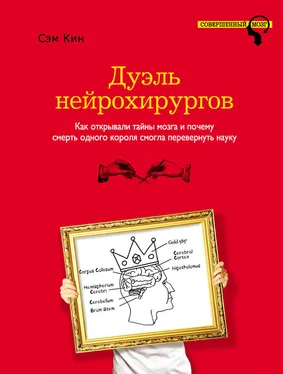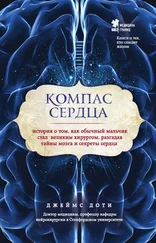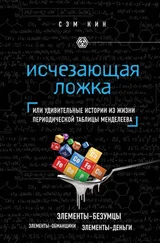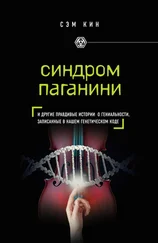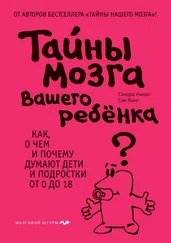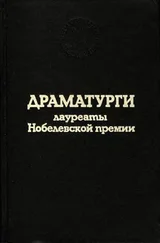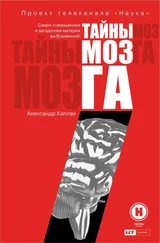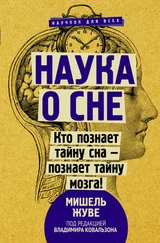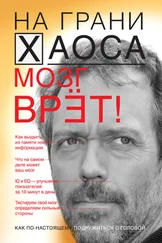20. Sharpe, William . Brain surgeon: the autobiography of William Sharpe. London: Gollancz, 1953.
Глава 8 Священная болезнь
1. Cassano, D . «Neurology and the Soul: From the origins until 1500». Journal of the History of the Neurosciences 5, no. 2 (1996): 152–61.
2. Costandi, Mo . «Diagnosing Dostoyevsky’s Epilepsy». Science Blogs. http://neurophilosophy.wordpress.com/2007/04/16/diagnosing-dostoyevskys-epilepsy/ (accessed November 4, 2013).
3. Costandi, Mo . «Wilder Penfield, Neural Cartographer». Science Blogs. http://scienceblogs.com/neurophilosophy/2008/08/27/wilder-penfield-neural-cartographer/ (accessed November 4, 2013).
4. Eccles, John . «Wilder Graves Penfield». In Memoirs of Fellows of the Royal Society. London: The Royal Society, 1978: 473–513.
5. Finger, Stanley . «The Birth of Localization Theory». Handbook of Clinical Neurology 95, no. 1 (2010): 117–28.
6. Foote - Smith, Elizabeth , and Timothy J. Smith . «Historical Note: Emanuel Swedenborg». Epilepsia 37, no. 2 (1996): 211–18.
7. Harris, Lauren Julius , and Jason B. Almerigi . «Probing the Human Brain with Stimulating Electrodes: The story of Roberts Bartholow’s (1874) experiment on Mary Rafferty». Brain and Cognition 70, no. 1 (2009): 92–115.
8. Hebb, Donald O ., and Wilder Penfield . «Human Behavior after Extensive Bilateral Removal from the Frontal Lobes». Archives of Neurology and Psychiatry 44, no. 2 (1940): 421–38.
9. Jones, Simon R . «Talking Back to the Spirits: The voices and visions of Emanuel Swedenborg». History of the Human Sciences 21, no. 1 (2008): 1–31.
10. Lewis, Jefferson . Something hidden: a biography of Wilder Penfield. Toronto, Ont.: Doubleday Canada, 1981.
11. Morgan, James P . «The First Reported Case of Electrical Stimulation of the Human Brain». Journal of the History of Medicine and Allied Sciences 37, no. 1 (1982): 51–64.
12. Newberg, Andrew B ., Eugene G. Aquili, and Vince Rause . Why God won’t go away: brain science and the biology of belief. New York: Ballantine Books, 2001.
13. Penfield, Wilder . «The Frontal Lobe in Man: A clinical study of maximal removals». Brain 58, no. 1 (1935): 115–33.
14. Penfield, Wilder . «The Interpretive Cortex». Science 129, no. 3365 (1959): 1719–25.
15. Penfield, Wilder . No man alone: a neurosurgeon’s life. Boston: Little, Brown, 1977.
16. Penfield, Wilder . «Some Mechanisms of Consciousness Discovered During Electrical Stimulation of the Brain». Proceedings of the National Academy of Science 44, no. 2 (1958): 51–66.
17. Penfield, Wilder . «The Twenty-Ninth Maudsley Lecture: The role of the temporal cortex in certain psychical phenomenon». Journal of Mental Science 101, no. 424 (1955): 451–65.
18. Taylor, Charlotte S. R., and Charles G. Gross. «Twitches Versus Movements: A story of motor cortex». Neuroscientist 9, no. 5 (2003): 332–42.
19. Zago, Stefano , et al. «Bartholow, Sciamanna, Alberti: Pioneers in the electrical stimulation of the exposed human cerebral cortex». Neuroscientist 14, no. 5 (2008): 521–28.
Глава 9 «Фокусы разума»
1. Biran, Iftah , et al. «The Alien Hand Syndrome: What makes the alien hand alien?» Cognitive Neuropsychology 23, no. 4 (2006), 563–82.
2. Breen, Nora, et al. «Towards an Understanding of Delusions of Misidentification: Four case studies». Mind and Language 15, no. 1 (2000): 74–110.
3. Cooper, John Milton . Woodrow Wilson: a biography. New York: Alfred A. Knopf, 2009.
4. Custers, R ., and H. Aarts . «The Unconscious Will: How the pursuit of goals operates outside of conscious awareness». Science 329, no. 5987 (2010): 47–50.
5. Draaisma, Douwe . «Echoes, Doubles, and Delusions: Capgras syndrome in science and literature». Style 43, no. 3 (2009): 429–41.
6. Ellis, Hadyn D ., and Michael B. Lewis . «Capgras Delusion: A window on face recognition». Trends in Cognitive Science 5, no. 4, (2001): 149–56.
7. Ellis, Hadyn D ., et al. «Reduced Autonomic Responses for Faces in Capgras Delusion». Proceedings of the Royal Society of London B 264, no. 1384 (1997): 1085–92.
8. Fisher, C. M . «Alien Hand Phenomena: A review of the literature with the addition of six personal cases». Canadian Journal of Neurological Sciences 27, no. 3 (2000): 192–203.
9. Hirstein, William , and Vilayanur S. Ramachandran . «Capgras Syndrome: A novel probe for understanding the neural representation of the identity and familiarity of persons». Proceedings of the Royal Society of London B 264, no. 1380 (1997): 437–44.
10. Klemm, W. R . «Free Will Debates: Simple experiments are not so simple». Advances in Cognitive Psychology 6, no. 1 (2010): 47–65.
11. Libet, Benjamin , et al. «Time of Conscious Intention to Act in Relation to Onset of Cerebral Activity (Readiness-Potential)». Brain 106, no. 3 (1983): 623–42.
12. McKay, Ryan, Robyn Langdon , and Max Coltheart . «‘Sleights of Mind’: Delusions, defenses, and self-deception». Cognitive Neuropsychiatry 10, no. 4 (2005): 305–26.
13. Morris, Errol . «The Anosognosic’s Dilemma: Something’s wrong but you’ll never know what it is». New York Times. http://opinionator.blogs.nytimes.com/2010/06/20/the-anosognosics-dilemma-1/(accessed November 4, 2013).
14. Prigatano, George P ., and Daniel L. Schacter . Awareness of deficit after brain injury: clinical and theoretical issues. New York: Oxford University Press, 1991.
15. Ramachandran, Vilayanur S. «What Neurological Syndromes Can Tell Us about Human Nature». Cold Spring Harbor Symposium on Quantitative Biology 61,no. 1 (1996): 115–34.
16. Roskies, Adina . «Neuroscientific Challenges to Free Will and Responsibility». Trends in Cognitive Science 10, no. 9 (2006): 419–23.
17. Scepkowski, Lisa A ., and Alice Cronin-Golomb . «The Alien Hand: Cases, categorizations, and anatomical correlates». Behavioral and Cognitive Neuroscience Reviews 2, no. 4 (2003): 261–77.
18. Todd, J . «The Syndrome of Alice in Wonderland». Canadian Medical Association Journal 73, no. 9 (1955): 701–4.
19. Weinstein, Edwin A . «Woodrow Wilson’s Neurological Illness». Journal of American History 57, no. 2 (1970): 324–51.
Глава 10 Правдивая ложь
1. Berrios, German E . «Confabulations: A conceptual history». Journal of the History of the Neurosciences 7, no. 3 (1998): 225–41.
2. Bruyn, G. W. , and C harles M. Poser . The history of tropical neurology: nutritional disorders. Canton, MA: Science History Publications/USA, 2003.
3. Buckner, Randy L. , and Mark E. Wheeler. «The Cognitive Neuroscience of Remembering». Nature Reviews: Neuroscience 2, no. 9 (2001): 624–34.
4. Corkin, Suzanne. «Lasting Consequences of Bilateral Medial Temporal Lobectomy». Seminars in Neurology 4, no. 2 (1984): 249–59.
5. Corkin, Suzanne . Permanent present tense: the unforgettable life of the amnesic patient, H.M. New York: Basic Books, 2013.
6. Corkin, Suzanne . «What’s New with Amnesic Patient H.M.?» Nature Reviews: Neuroscience 3, no. 2 (2002): 153–60.
7. Dalla Barba, Gianfranco . «Consciousness and Confabulation: Remembering ‘another’ past». In Broken memories: case studies in memory impairment. Oxford: Blackwell, 1995: 101–23.
Читать дальше
Конец ознакомительного отрывка
Купить книгу
